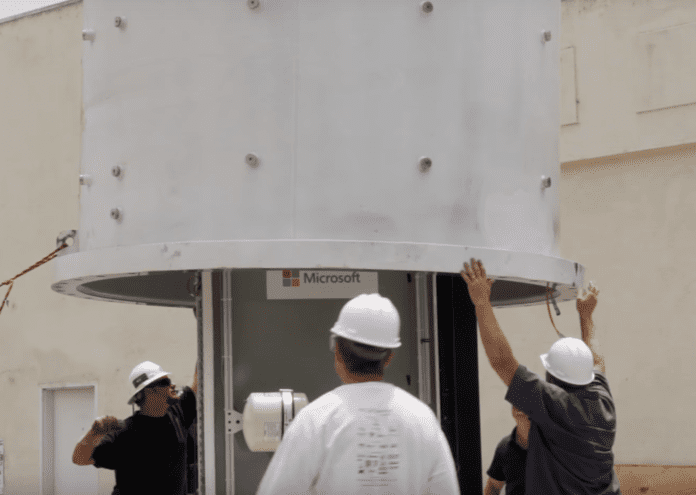Project Natick is Microsoft’s effort to make a more efficient, better located data center under the sea
Cloud computing heavyweight Microsoft, looking to boost the operational efficiency of data centers while physically locating content closer to users, has tested running servers sealed in a pod located underwater off the coast of California.
Dubbed Project Natick, the goal is “to understand the benefits and difficulties in deploying subsea datac enters worldwide. We did so by designing, building, and deploying our own subsea datacenter in the ocean, all in about a year.”
Here’s a video overview:
Basically, data centers use a lot of power to keep servers and other hardware cool, which is expensive. Putting the servers underwater lets the ambient temperature of the ocean do the cooling in a much more economical way. Further, ocean currents could actually be harnessed to provide the power the data center needs. And, finally, putting servers underwater is much different from constructing a data center; ideally, an assembly line approach would change the construction dynamic around data centers.
Peter Lee, corporate VP for Microsoft Research NExT, told CNN Money: “What if we could pump out these pods on an assembly line? We could deliver a data center, from conception to operation, in 90 days. That’s dramatically different than what’s happening today. Our first experiment was like dipping our pinkie toe in the water, and now we’re going for the big toe.”
To learn more about data centers, check out this article about data center power needs, this one about the business case associated with data center colocation, and this look at key data center trends to watch in 2016.

